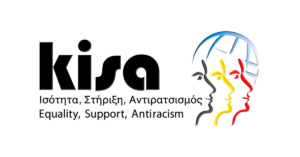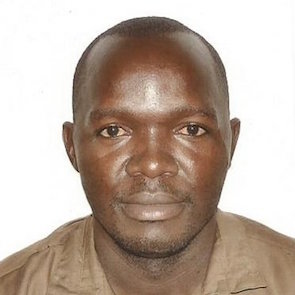The following is based on a communication written by the UN Special Rapporteur on Human Rights Defenders and other UN experts to the Governments of Uganda and the United Kingdom, and to companies EACOP and EACOP Uganda on 9 August 2023. The communication remained confidential for 60 days before being made public, giving the Governments time to reply. Regrettably, the Governments did not reply within this time frame. EACOP replied on 4 October 2023. If more replies are received, they will be posted on the UN Special Procedures communications database.
This is a shorter version of the original communication.
BACKGROUND
Topics: the arrest of Mr. Bob Barigye, an environmental human rights defender working on human rights issues in the oil and gas sector, and the continued threats against, and intimidation of, human rights defenders working on protecting the rights of communities in the context of oil and gas extraction in Uganda, as well as those working on land, including compensation of communities affected by the East African Crude Oil Pipeline (EACOP) reaching from Uganda to Tanzania.
Mr. Bob Barigye works with the African Initiative on Food Security and Environment – Uganda (AIFE-Uganda), a non-governmental organisation (NGO) that organises communities around environmental conservation. He was active in the campaign regarding the environmental and economic impact of the East African Crude Oil Pipeline (EACOP).
The East African Crude Oil Pipeline Project (EACOP) is a pipeline under construction that will transport oil produced from Uganda’s Lake Albert oil fields, to the port of Tanga in Tanzania, running over 1443 km, where the oil will then be sold to world markets. The shareholders of EACOP are Total Energies, the Uganda National Oil Company, Tanzania Petroleum Development Corporation and the Chinese CNOOC limited. The project will cross several conservation areas, protected areas and key biodiversity areas.
ALLEGATIONS
On 24 January 2023, Mr. Bob Barigye organised an AIFE-Uganda public meeting in a local hotel to debate the environmental, economic and other human rights impacts of the EACOP. Reportedly, police intervened, preventing the event from starting, and arrested Mr. Barigye. Some 15 police officers allegedly beat him when he refused to obey to the order to stand up from where he was sitting on the ground. After putting him into a police van, officers forced him to lie on the floor underneath the seats in the van, and took him to the Wandegeya Police Station. Officers allegedly continued to beat him on the way. He sustained injuries to his left arm and leg as a result of the beatings.
On the same day, Mr. Barigye was placed in an unhygienic, cold and crowded cell at the police station, with no bedding. He was denied access to his lawyer for two days, during which time he was insulted, and required to sign a statement, which he refused to do. During this period, he was, at first, denied medical attention for his injuries and developed a fever.
On 26 January 2023 Mr. Barigye’s lawyer was allowed to see him. On this occasion, Mr. Barigye signed the statement in his presence and was granted release, with instructions to report back to the police station.
On 27 January 2023. Mr. Barigye was charged with obstructing police officers while on duty and was released on police bond.
On 28 January 2023, Mr. Barigye visited his doctor and was prescribed medication for chest and abdominal pain. The doctor’s medical certificate indicated he had a mild haemorrhage from bruises to his left elbow and soft tissue injury in his left lower limb.
On 30 January 2023, Mr. Barigye reported back to Wandegeya Police Station as instructed and was told to return on 28 February 2023, while his case was under investigation. No charge was pronounced or court date set.
On 28 February 2023, Mr. Barigye reported to the police station and was told to return the next day with his lawyer.
On 1 March 2023, Mr. Barigye and his lawyer were told the case had been closed and the charges dropped.
Mr. Barigye was arrested previously and still faces charges as described below:
On 9 December 2022, Mr. Barigye and three members of the StopEACOP global campaign were arrested while protesting peacefully against the EACOP. They were held in an unhygienic and crowded cell in Kampala Police Station.
On 11 December 2022, Mr. Barigye and his fellow activists were released on precautionary measures requiring them to report regularly at the Kampala Police Station.
On 12 January 2023, Mr. Barigye and his fellow activists were detained when they reported to Kampala Police Station as instructed. They were brought to court where they were officially charged with “inciting violence,” and “common nuisance,” for which a court hearing was set for 23 February 2023. They were released the same day.
On 23 February 2023, and on 22 March 2023 Mr. Barigye appeared in court for hearings from prosecution witnesses.
On 9 May, Mr. Barigye again attended a hearing in court. His case was dismissed on account of a lack of evidence from the state.
On 11 July 2023, Mr. Barigye was arrested again after protests against EACOP in Kampala. He is currently on police bond.
CONCERNS
In the communication, we express our concerns regarding the allegations of arrests, acts of intimidation and judicial harassment in the past year of Mr. Barigye and other human rights defenders in relation to their work. Some 30 human rights defenders and 20 non-governmental organisations that work with communities affected by the EACOP project have been reportedly subjected to surveillance, smear campaigns and threats. Many human rights defenders have reportedly been arrested while holding peaceful demonstrations or events critical of the EACOP pipeline and were allegedly held in custody longer than the permitted 48 hours, with no family contact or access to legal support.
These acts seem to be part of a broader pattern of intimidation and harassment of civil society organisations and groups in Uganda who have raised human rights concerns arising from oil and gas projects, which may include the potential displacement of more than 100,000 people without guarantees of proper compensation. These practices would amount to serious breaches of the fundamental rights to freedom of peaceful assembly, freedom of association, and freedom of expression and opinion.



